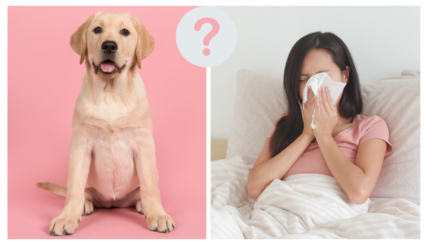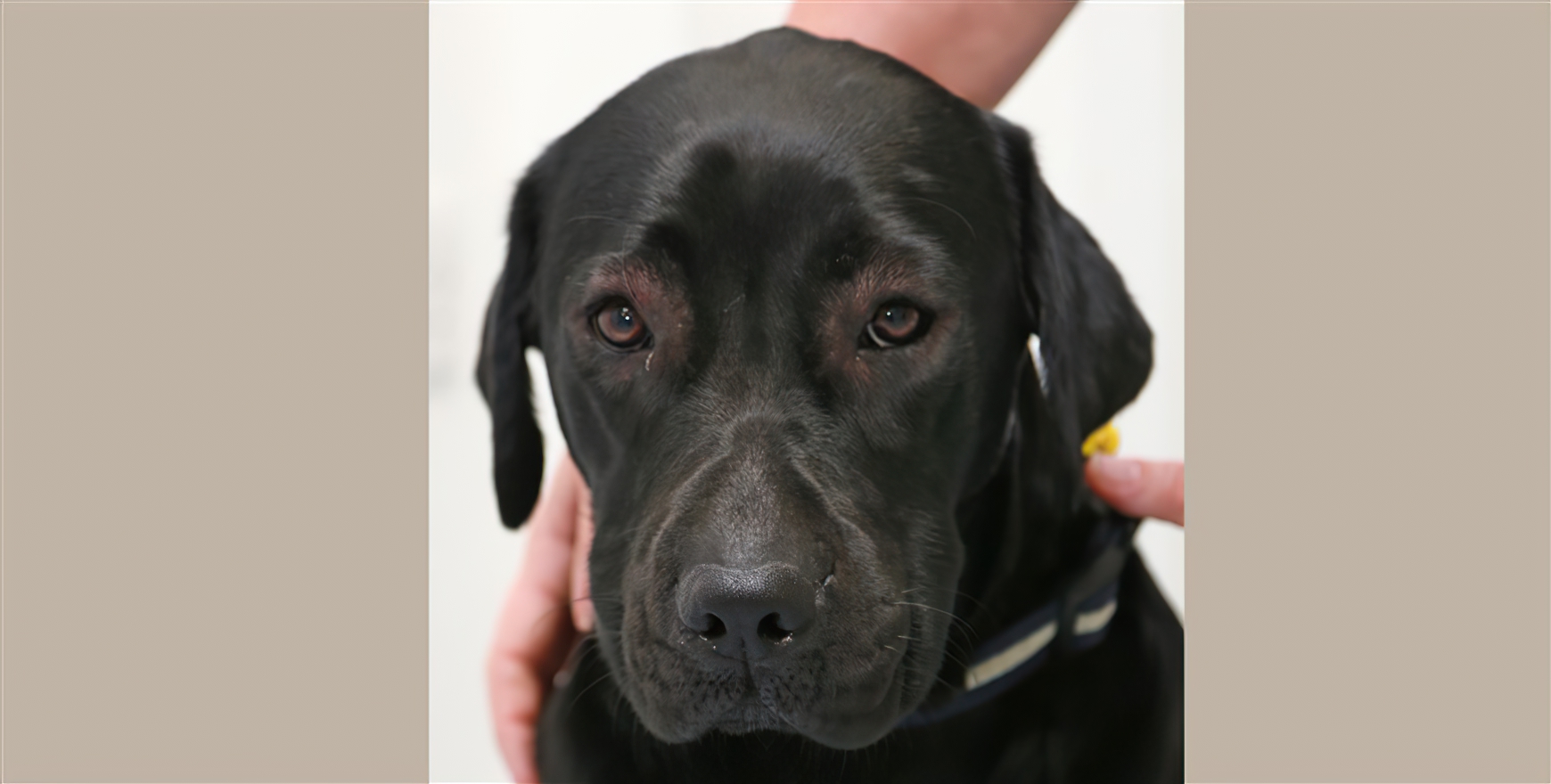Yes, you can be allergic to Labradors. People may react to their dander, saliva, or urine.
Labrador Retrievers are beloved family pets known for their friendly nature and intelligence. However, many potential dog owners worry about allergies. Allergies to dogs, including Labradors, stem from proteins found in their skin, saliva, and urine. These allergens can cause symptoms like sneezing, itching, and respiratory issues.
Understanding these allergies helps individuals make informed decisions about bringing a Labrador into their home. While no dog is completely hypoallergenic, some breeds produce fewer allergens. Researching and consulting with an allergist can provide insights and solutions for managing allergies while still enjoying the companionship of a Labrador. Consider your options carefully before making a commitment.
The Truth About Pet Allergies
Many people wonder, “Can you be allergic to Labradors?” The answer lies in understanding pet allergies. These allergies often come from proteins found in pet saliva, urine, and skin. Knowing the truth can help manage symptoms and improve your quality of life.
Common Triggers
Pet allergies are common. Here are some of the main triggers:
- Pet Dander: Tiny flakes of skin that pets shed.
- Saliva: Proteins in saliva can cause reactions.
- Urine: Allergens can be present in pet urine.
- Fleas: Flea saliva can also trigger allergies.
Why Pets Cause Reactions
Understanding why pets cause allergic reactions is crucial. Here are the main reasons:
- Immune Response: Your body sees pet proteins as harmful.
- Histamines: Allergies release histamines, causing symptoms.
- Family History: Allergies can run in families.
Knowing these reasons helps in managing allergies. Consult a doctor for more advice.

Credit: rockykanaka.com
Labradors And Allergies: The Connection
Many people love Labradors for their friendly nature. Yet, some may wonder about allergies. Can you really be allergic to Labradors? Understanding their unique traits helps clarify this issue.
What Makes Labradors Different?
Labradors are popular family pets. They have distinct features that set them apart:
- Coat Type: Labradors have a double coat. This means they shed more than some breeds.
- Skin Oil: Their skin produces natural oils. These oils can trigger allergic reactions in some people.
- Size: Labradors are medium to large dogs. Their size can lead to more dander in the environment.
People may be allergic to dog hair, dander, or saliva. Understanding these factors is key in addressing allergies.
Comparing Breeds
Not all dog breeds cause the same allergic reactions. Here is a comparison:
| Breed | Shedding Level | Allergy Potential |
|---|---|---|
| Labrador | High | Moderate |
| Poodle | Low | Low |
| Bulldog | Medium | Low |
Individuals allergic to Labradors may fare better with hypoallergenic breeds. Consider these factors before choosing a dog.
Remember, allergy reactions vary for each person. Some may experience mild symptoms. Others may have severe reactions. It’s essential to assess personal tolerance before bringing a Labrador home.
Symptoms Of Pet Allergies
Pet allergies can cause various uncomfortable symptoms. Recognizing these signs helps manage your health. Labradors may trigger allergic reactions in sensitive individuals. Understanding these symptoms is crucial for pet owners.
Recognizing The Signs
Common symptoms of pet allergies include:
- Itchy skin or rashes
- Red, watery eyes
- Frequent sneezing
- Runny or stuffy nose
- Coughing or wheezing
- Shortness of breath
Each person reacts differently. Some may experience mild symptoms. Others might have severe reactions. Pay attention to your body’s signals.
When To Seek Medical Advice
Consider seeking medical advice in these situations:
- Symptoms persist despite home remedies.
- Severe reactions occur, such as swelling.
- Breathing problems develop suddenly.
- Symptoms interfere with daily life.
Doctors can provide appropriate tests and treatments. Early intervention helps prevent complications.

Credit: www.theskinvet.net
Managing Allergies: Practical Tips
Managing allergies to Labradors can be challenging. Implementing practical tips can help reduce symptoms. This section covers creating an allergy-friendly home and exploring treatment options.
Creating An Allergy-friendly Home
Transforming your living space can significantly reduce allergens. Follow these steps to create an allergy-friendly environment:
- Clean Regularly: Dust surfaces weekly. Vacuum carpets and rugs frequently.
- Use Air Purifiers: Install HEPA filters to trap pet dander.
- Wash Bedding: Clean pet bedding weekly. Use hot water to kill allergens.
- Limit Pet Access: Restrict Labradors to certain rooms. Keep bedrooms pet-free.
- Choose Hard Flooring: Opt for tile or hardwood instead of carpet.
Treatment Options
Several treatment options can help manage dog allergies. Consider these methods:
| Treatment | Description |
|---|---|
| Antihistamines | Over-the-counter medications can relieve allergy symptoms. |
| Decongestants | Reduce nasal congestion caused by allergens. |
| Nasal Sprays | Help reduce inflammation in the nasal passages. |
| Allergy Shots | Desensitize the immune system to allergens over time. |
Consult a doctor before starting any treatment. Each person reacts differently to allergens.
By following these tips, you can enjoy your Labrador while managing allergies effectively.
Hypoallergenic Breeds: Fact Or Fiction?
Many people wonder if hypoallergenic breeds exist. The term suggests some dogs cause fewer allergies. This idea brings hope to allergy sufferers. Yet, the reality is more complex.
The Science Behind The Claim
Allergies to dogs come from proteins found in their skin, saliva, and urine. These proteins trigger reactions in sensitive individuals. Some breeds produce less of these proteins, but no breed is entirely hypoallergenic.
- Common Allergens: Proteins in dog dander.
- Variability: Each dog’s protein production varies.
- Grooming: Frequent grooming can help reduce dander.
Labradors produce allergens. Their shedding can worsen allergies. Many people think they are hypoallergenic, but they are not. Studies show mixed results. Some people react less severely to certain breeds.
Alternatives To Labradors
Allergy sufferers can still enjoy dog companionship. Several breeds are known to be better for allergy sufferers. Here are some popular options:
| Breed | Size | Coat Type |
|---|---|---|
| Poodle | Small to Large | Curl |
| Bichon Frise | Small | Curly |
| Portuguese Water Dog | Medium | Curly |
| Shih Tzu | Small | Long |
These breeds may still cause reactions. Always spend time with a breed before bringing one home. Test your allergies first. Each dog is unique. Choose wisely to ensure a happy home.

Credit: www.orangehealth.in
Conclusion
Allergies to Labradors can be a real concern for some individuals. Understanding the symptoms and triggers is crucial. While no dog is completely hypoallergenic, certain breeds may suit allergy sufferers better. Always consult with a healthcare professional before making decisions.
Finding the right balance can lead to a happier home for everyone.
